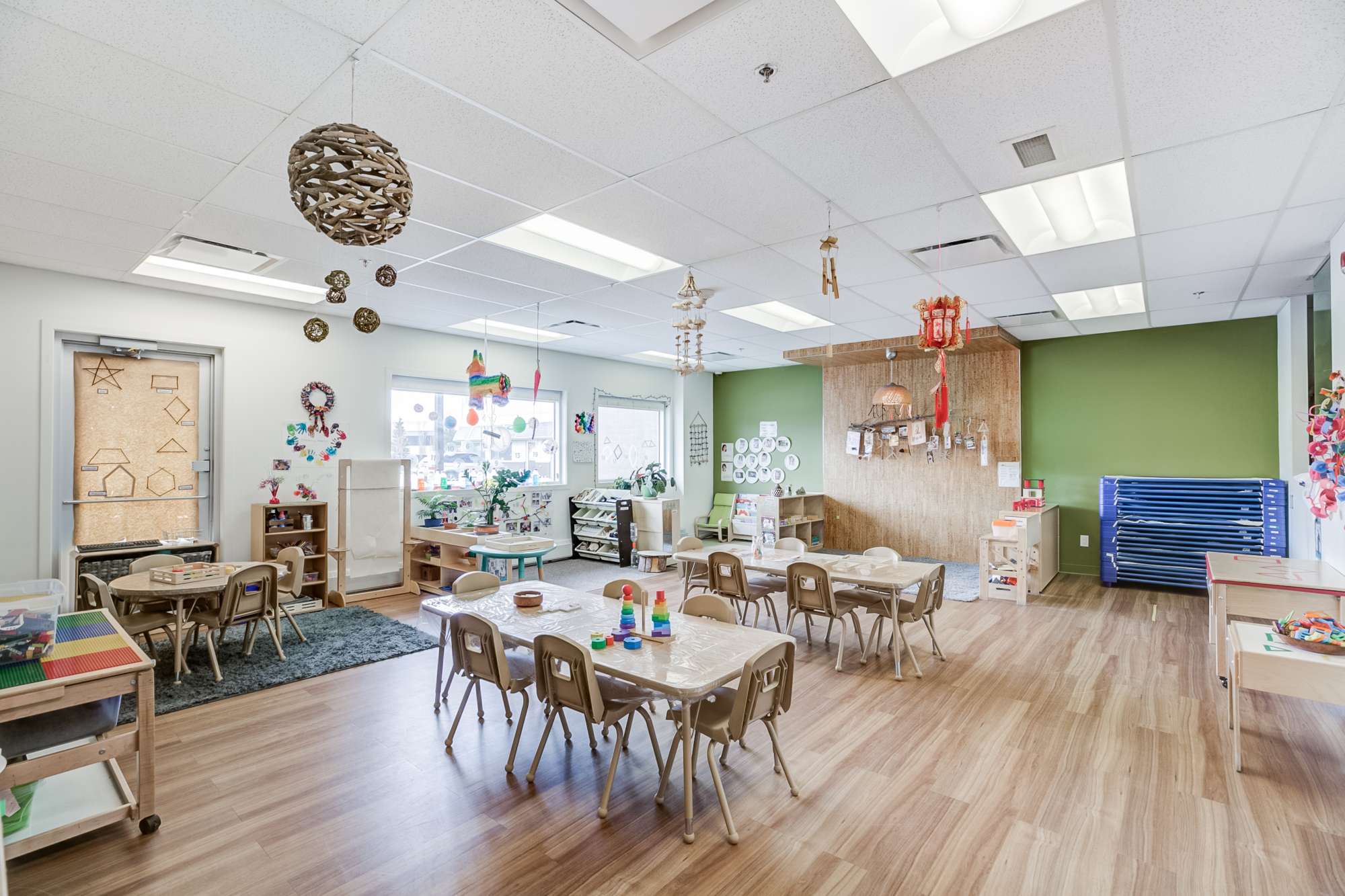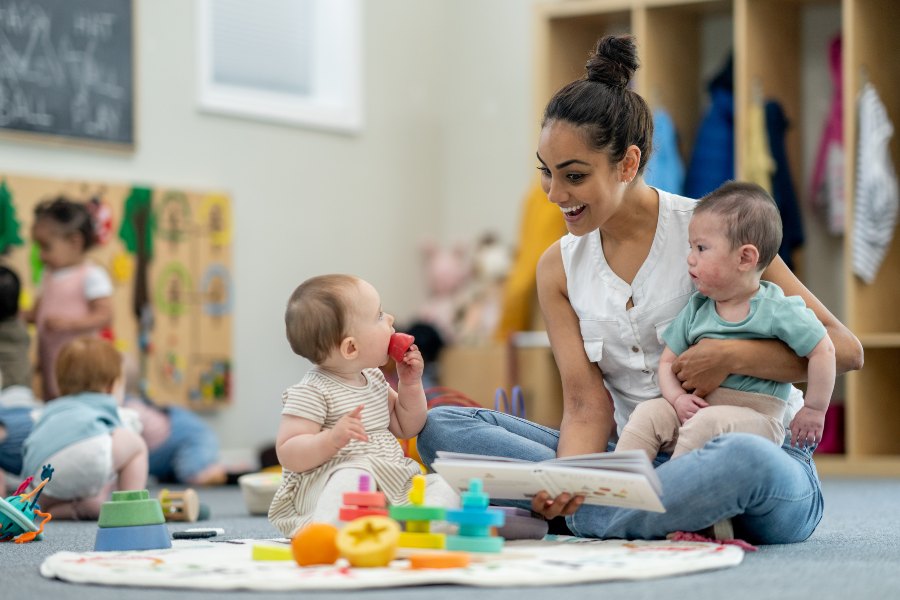The Duty of Day Care in Fostering Your Toddler's Psychological and Cognitive Skills Through Structured Play and Educational Tasks
The duty of daycare in supporting a kid's cognitive and emotional growth is commonly ignored, yet it offers as a crucial setting for structured play and academic tasks. Through very carefully created communications and experiences, caretakers promote important abilities such as emotional understanding and problem-solving.
Relevance of Organized Play
Structured play is a crucial component of toddler advancement, as it provides a structure whereby youngsters can take part in significant communications and discovering experiences. This sort of play is intentionally developed to cultivate various developing abilities, such as cognitive, social, and physical abilities. By getting involved in organized activities, toddlers learn to follow rules, take turns, and comply with peers, every one of which are crucial for their interpersonal skills.

Furthermore, structured play often incorporates instructional aspects, such as counting, shade recognition, and language development, seamlessly integrating learning right into enjoyable tasks. This technique not just captures kids' attention however also strengthens essential principles in an enjoyable way. On the whole, structured play is important in promoting a balanced development, outfitting toddlers with the foundational abilities necessary for future learning and social communications.
Emotional Development in Daycare
Daycare environments play a critical duty in fostering emotional advancement in toddlers. These setups give kids with chances to interact with peers and caregivers, facilitating the advancement of crucial social-emotional abilities. Via normal interactions, young children find out to identify and reveal their feelings, such as despair, disappointment, or delight, which is important for their emotional maturation.

Moreover, the structured setting of day care enables children to experience a variety of emotions in a secure room. When transitioning from home to day care and create resilience as they navigate brand-new connections and experiences, they find out to handle feelings of separation stress and anxiety. On the whole, the psychological development fostered in day care not just advantages toddlers during their formative years but additionally lays the groundwork for healthy social partnerships and emotional wellness throughout their lives.
Cognitive Abilities Through Tasks
With engaging in a variety of activities, toddlers in childcare setups can considerably boost their cognitive skills. Structured play and instructional tasks are essential in advertising cognitive growth, as they give chances for exploration, problem-solving, and vital reasoning. Tasks such as problems, foundation, and memory games test toddlers to think artistically and rationally, promoting vital this post abilities like spatial recognition and pattern recognition.
Additionally, interactive storytime sessions motivate language development and understanding. By paying attention to tales, toddlers find out to process information and engage their creative imaginations, which improves their narrative abilities and vocabulary. Furthermore, hands-on tasks involving crafts and arts boost great electric motor skills while additionally encouraging self-expression and imagination.
Sensory play, such as sand or water tasks, enables young children to try out different structures and products, advertising inquiry-based understanding. These experiences not only boost cognitive capacities however additionally instill a sense of interest about the globe around them - daycare near me for infants. Overall, the diverse series of cognitive tasks given in day care atmospheres plays a critical function in shaping a toddler's ability to think critically, address issues, and involve meaningfully with their surroundings
Social Connections and Interaction
In a caring atmosphere, young children normally create social connections and take part in interactions that are crucial for their social and psychological development. Childcare setups provide a distinct possibility for kids to connect with peers, promoting necessary social skills such as sharing, participation, and conflict resolution. These communications aid young children learn to navigate their feelings and recognize the viewpoints of others, which are vital parts of psychological knowledge.
Via structured play and team activities, kids are encouraged to interact their ideas and sensations, enhancing their spoken abilities and advertising empathy. Involving with peers additionally presents them to diverse social standards and habits, enriching their understanding of social dynamics. Constant interaction with other youngsters helps to build a sense of area, giving a support system that is advantageous for psychological development.
As kids he has a good point get involved in collaborative jobs, they learn the significance of teamwork, patience, and arrangement. These fundamental social abilities are vital as they prepare for future partnerships, both in educational settings and beyond. Ultimately, the social links formed in day care play a significant function fit a kid's ability to connect positively and successfully with others throughout their lives.
Duty of Caretakers in Development

Caretakers play a pivotal function in cultivating kid advancement, specifically in the context of the social interactions they experience in childcare setups. These specialists supply a caring setting where toddlers can explore their emotions and cognitive abilities through structured play and . By involving in purposeful discussions, caregivers support language growth and boost social skills.
Furthermore, caregivers design emotional feedbacks and proper behaviors, aiding toddlers find out empathy and problem resolution. Their existence additionally produces a complacency, which is crucial for kids to with confidence explore their environments and engage with peers.
In enhancement to social and emotional support, caretakers contribute in implementing academic curricula that advertise cognitive growth - toddler daycare near me. They introduce age-appropriate activities that boost curiosity, important reasoning, and problem-solving skills. This structured technique guarantees that young children not just enjoy their play yet also acquire fundamental expertise important for future discovering
Ultimately, the top quality of caretaker interactions substantially influences a toddler's overall advancement. By promoting a engaging and supportive environment, caretakers assist lay the foundation for healthy and balanced psychological and cognitive development, equipping children with important skills for their lifelong journey.
Final Thought
To conclude, day care works as an essential setting for cultivating cognitive and emotional development in toddlers. Via structured play and , kids experience considerable growth in their ability to recognize and express feelings, establish important believing skills, and form essential social links. The duty of caregivers contributes in promoting these experiences, making sure that each kid benefits from a nurturing ambience that advertises lifelong psychological wellness and cognitive development.
The duty of day care in nurturing a kid's psychological and cognitive development is often taken too lightly, yet it serves as a pivotal setting for structured play and instructional activities. Overall, structured play is critical in promoting a well balanced development, equipping kids with the foundational abilities required for future understanding and social interactions.
Childcare environments play a crucial function in fostering emotional growth in toddlers. Generally, the emotional growth fostered in day care not just benefits young children throughout their formative years however additionally lays the groundwork for healthy social relationships and emotional well-being throughout their lives.
Through structured play and look at more info team tasks, toddlers are motivated to connect their sensations and ideas, enhancing their verbal abilities and advertising compassion.